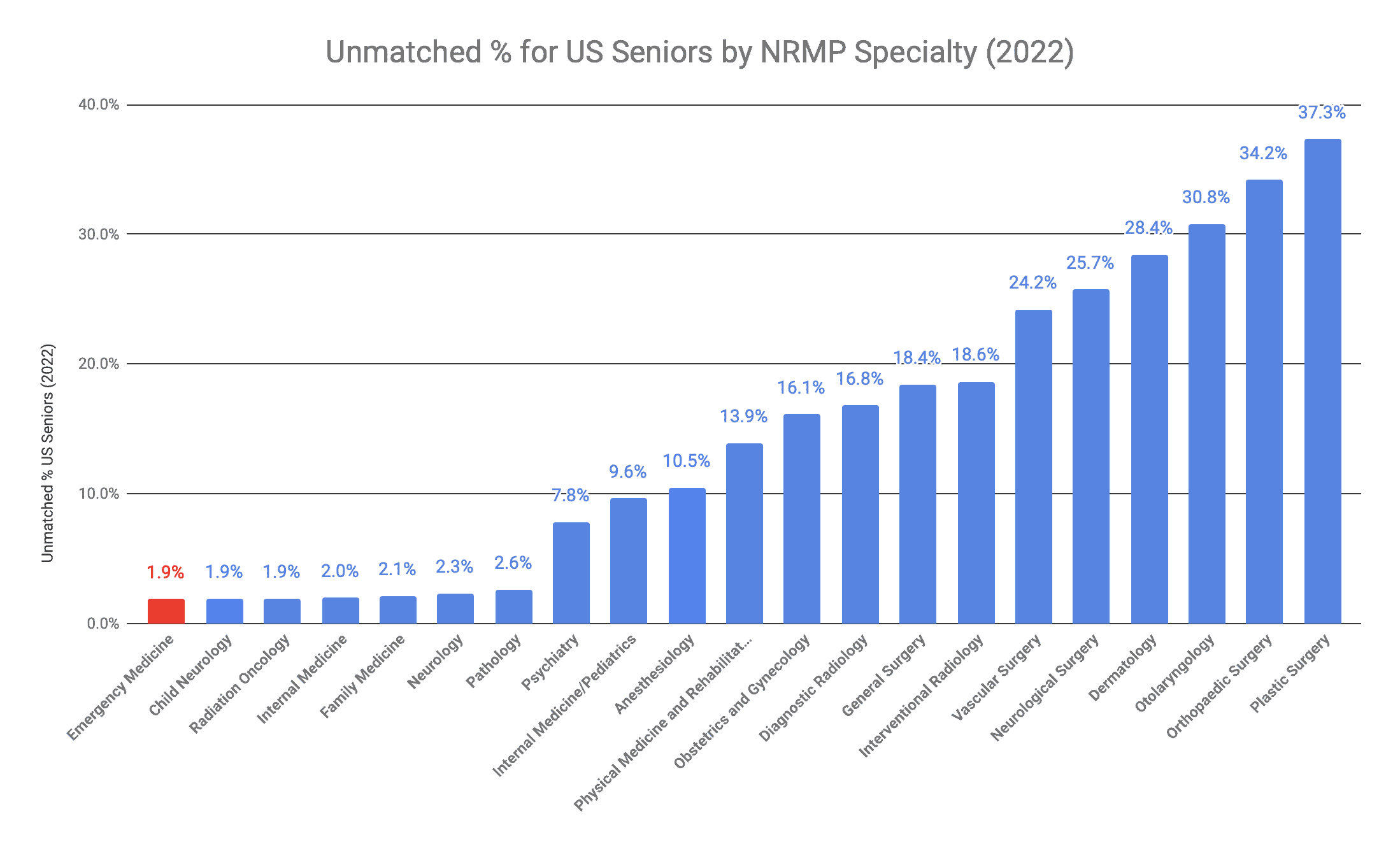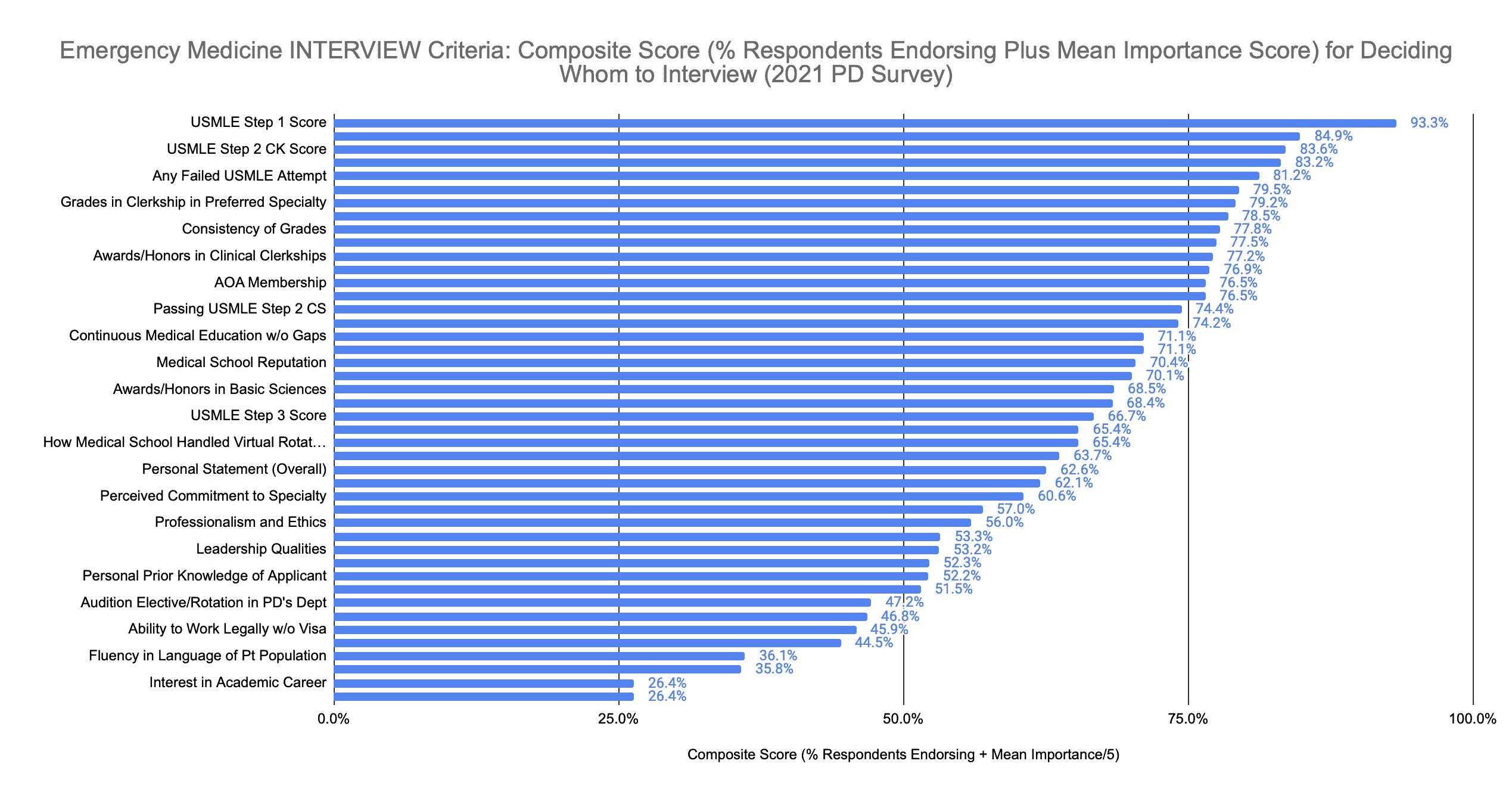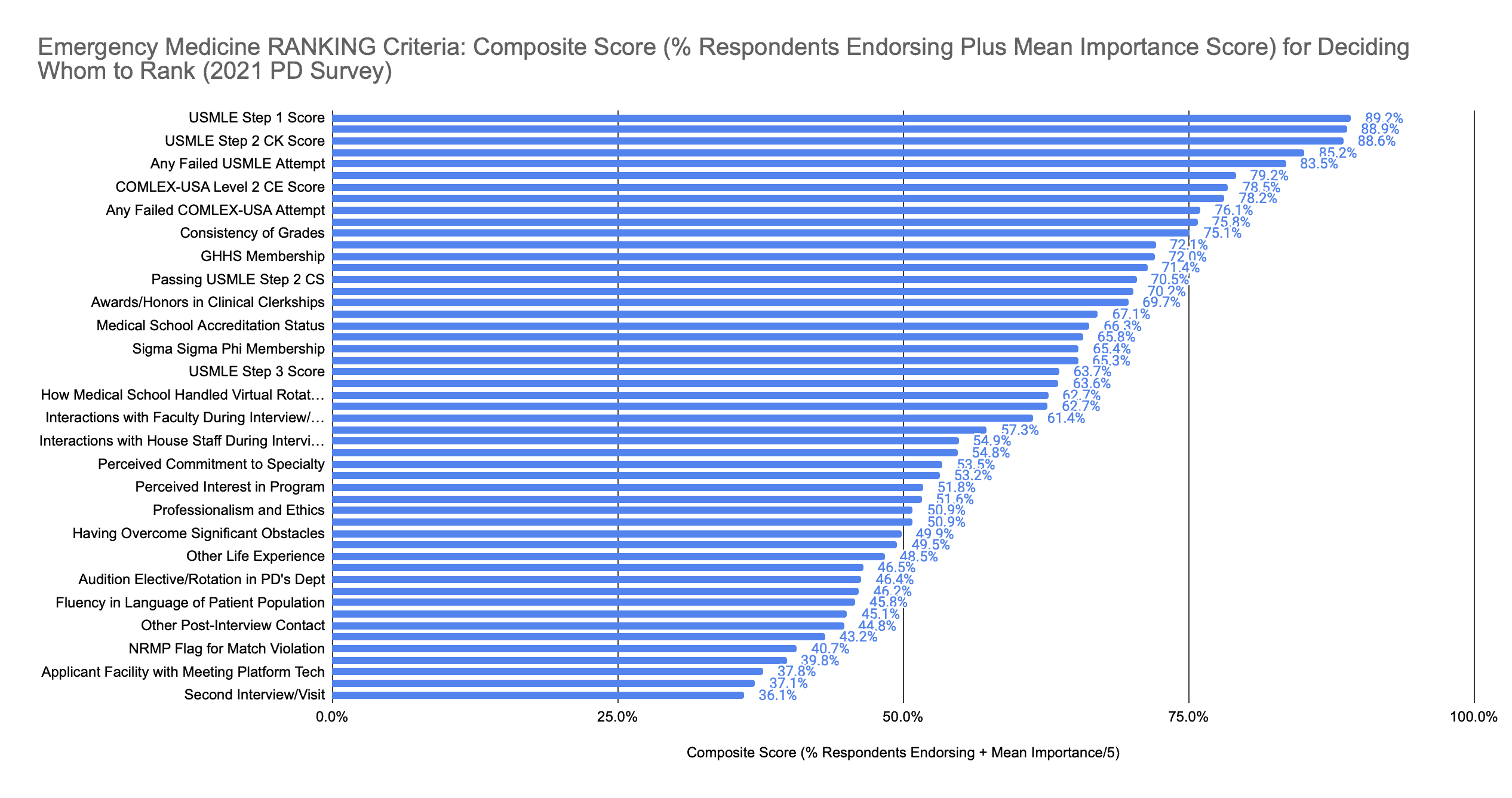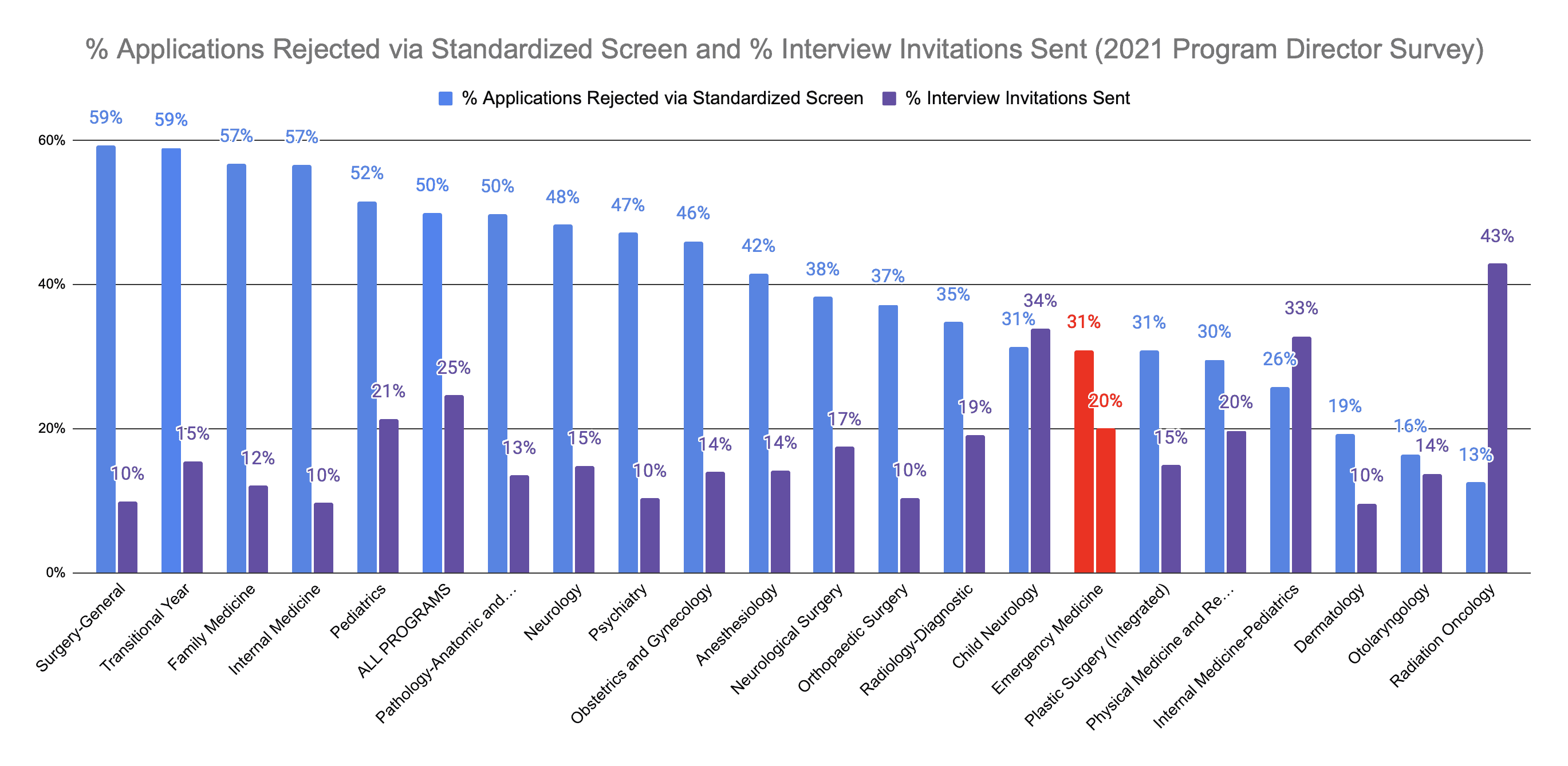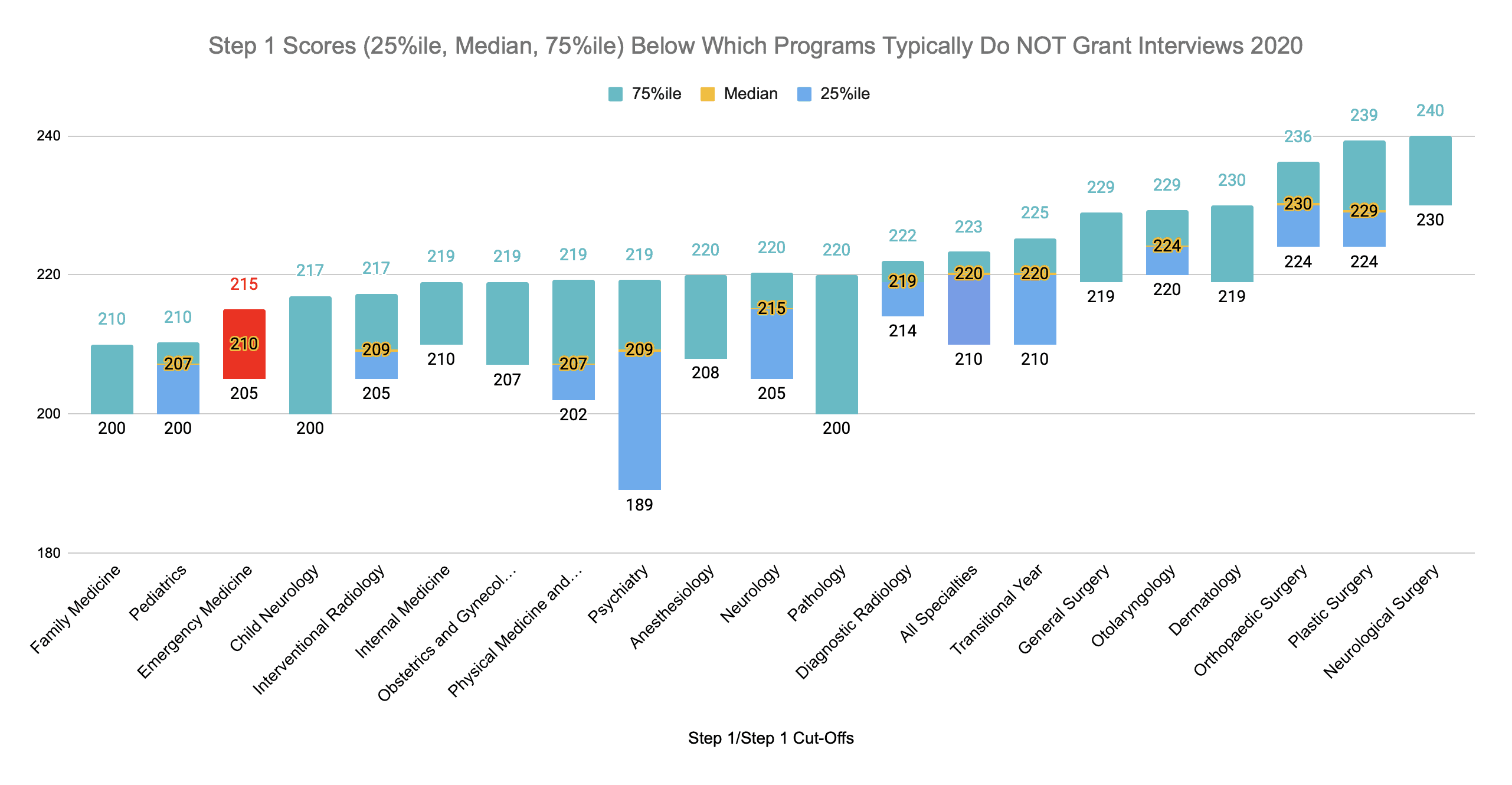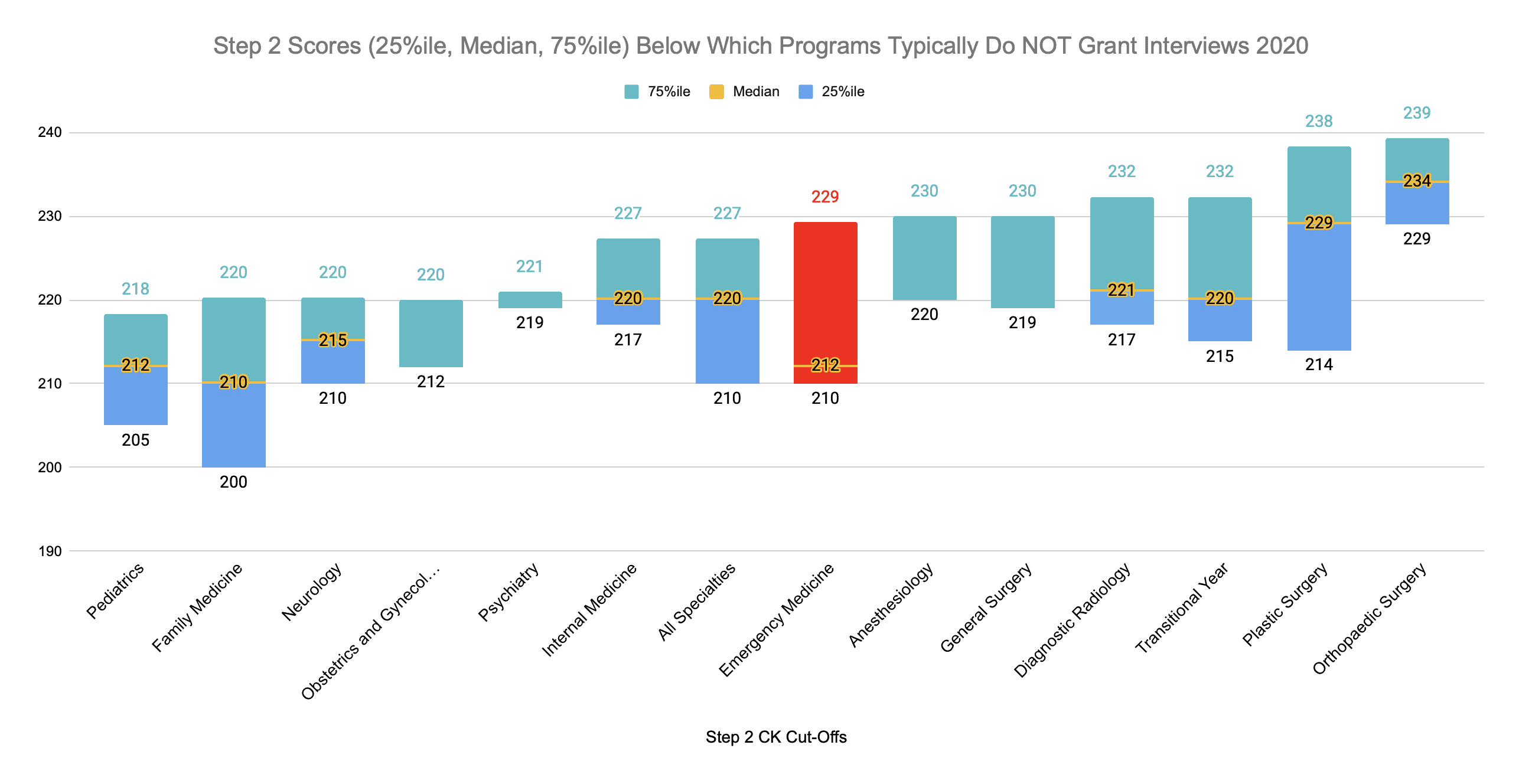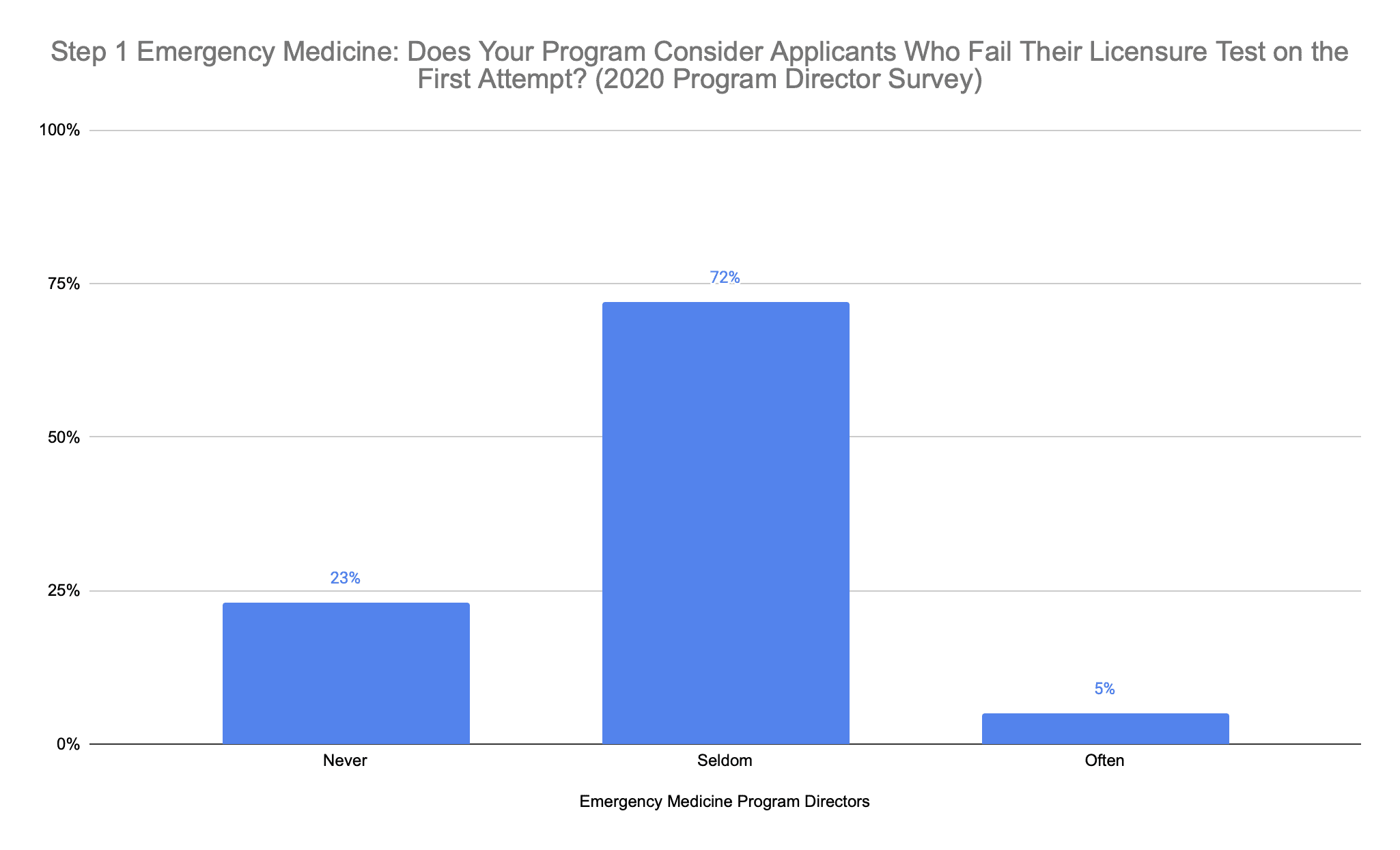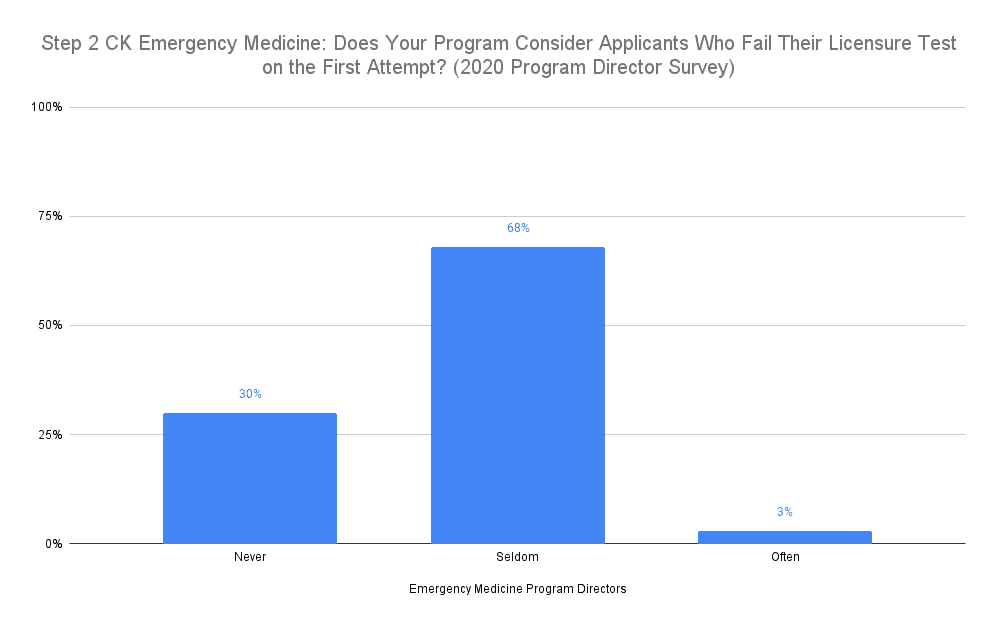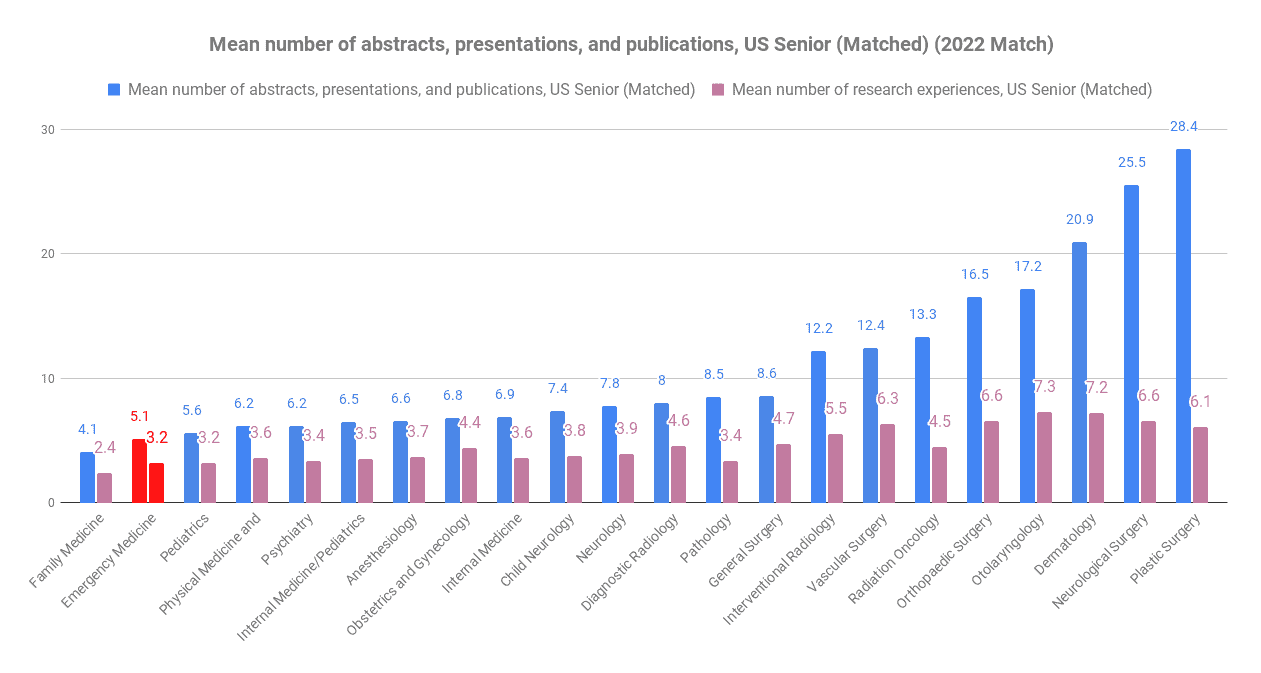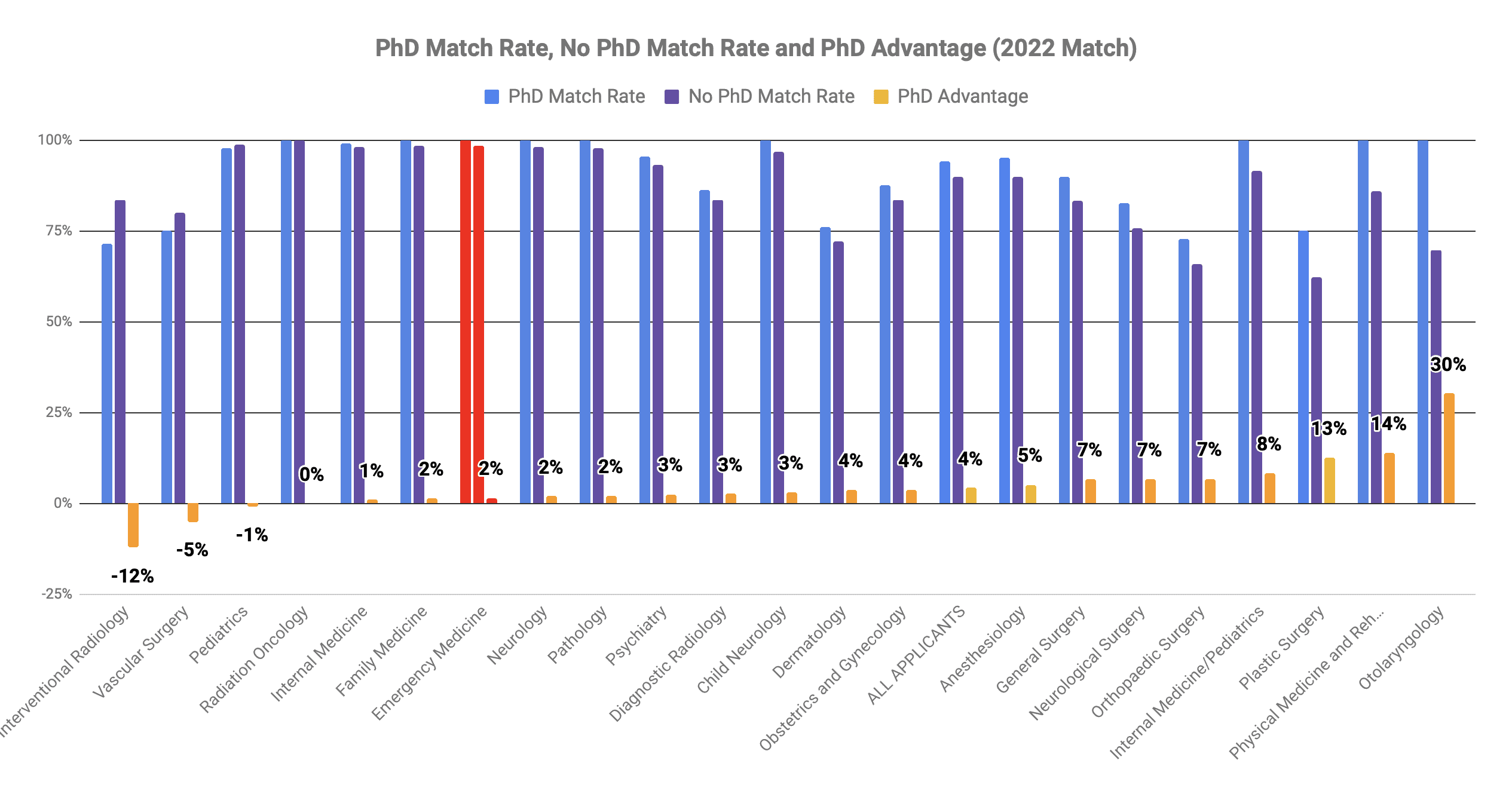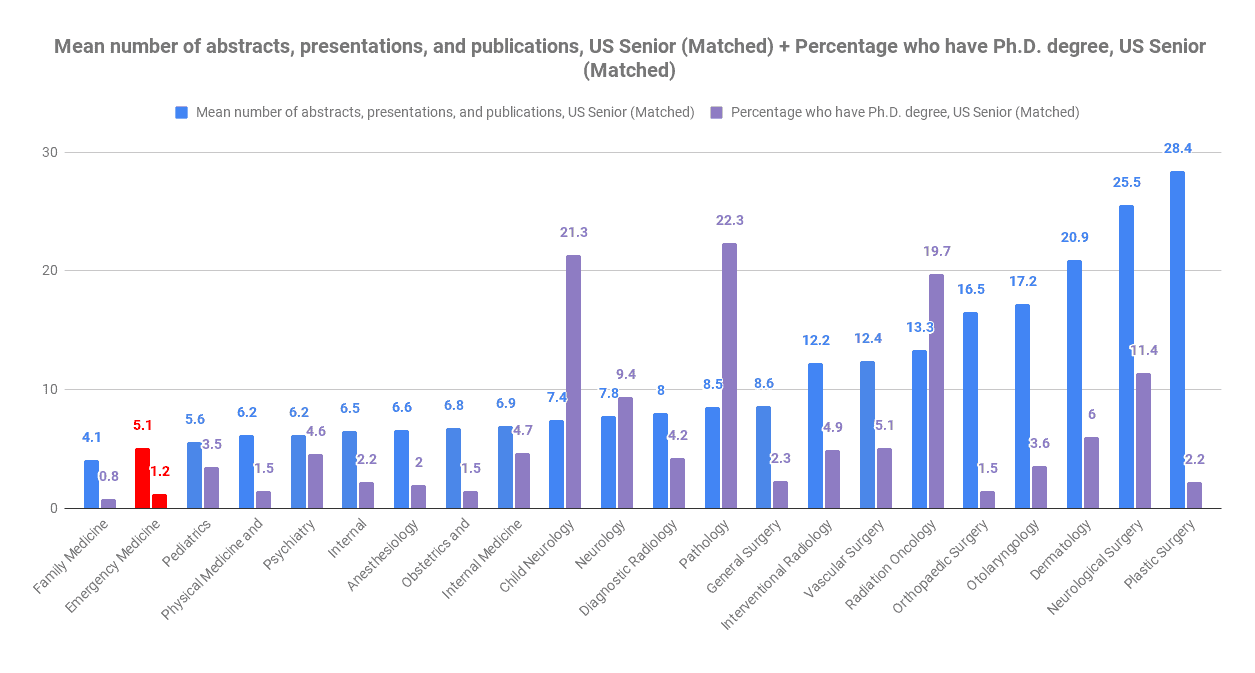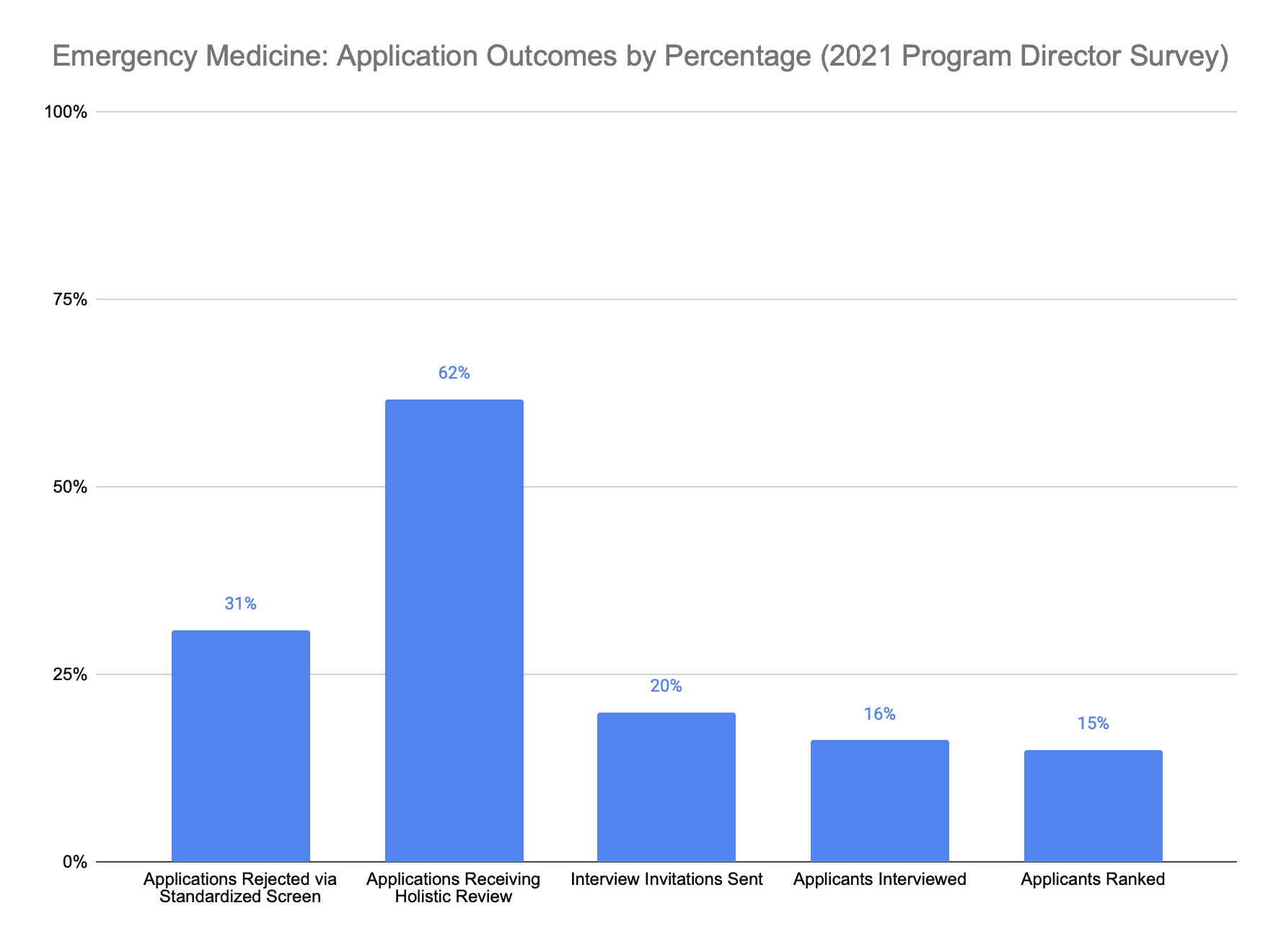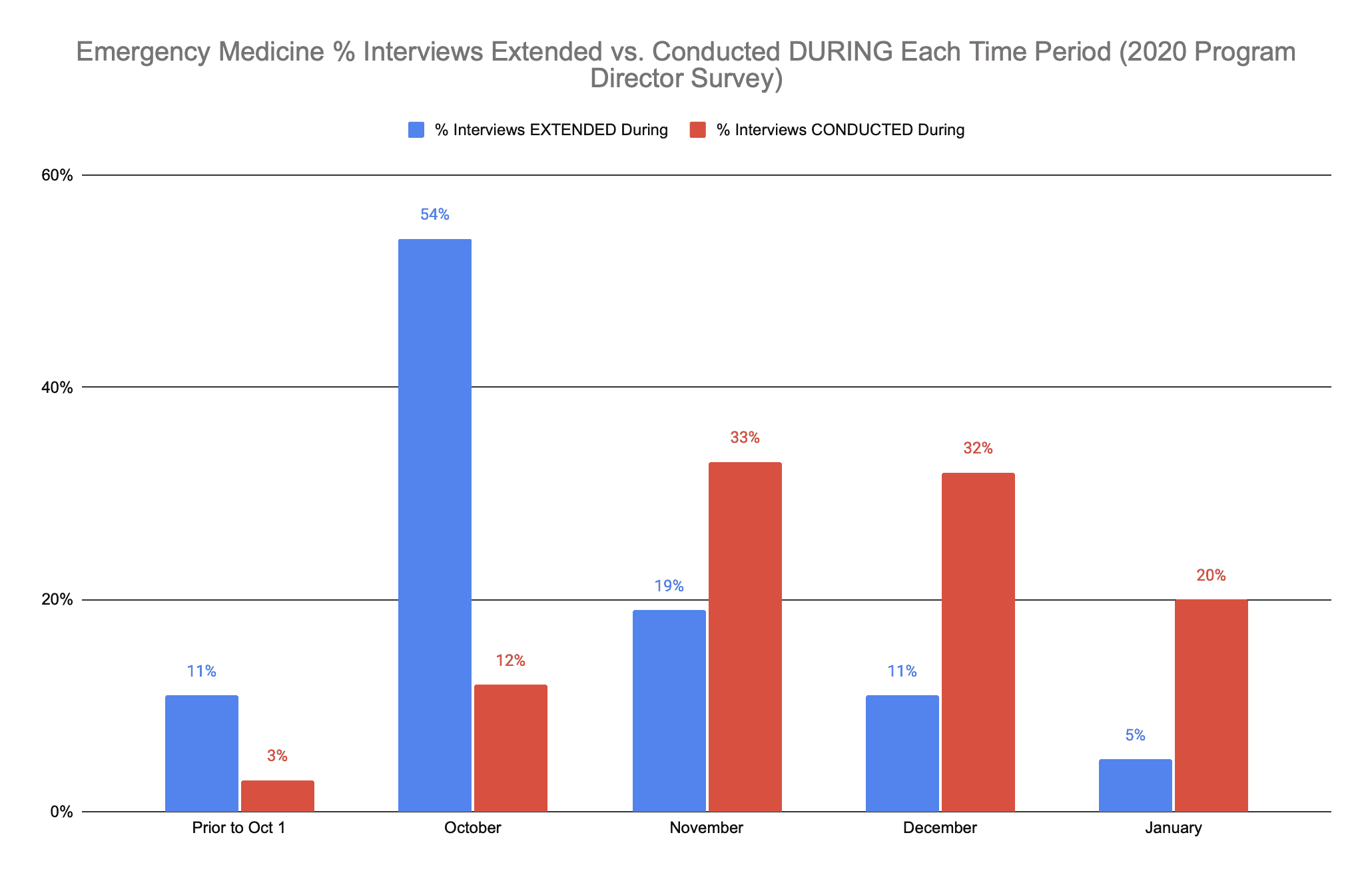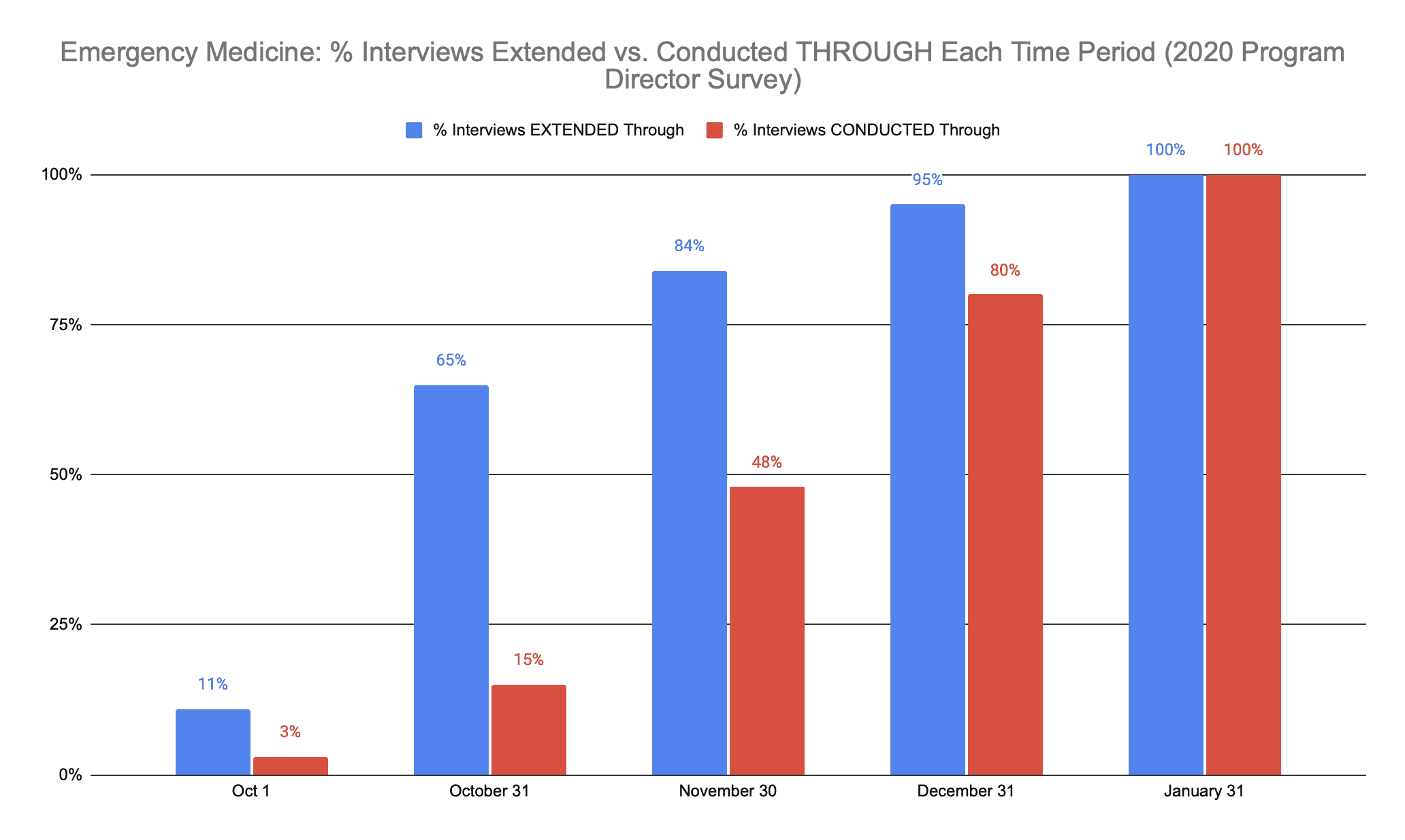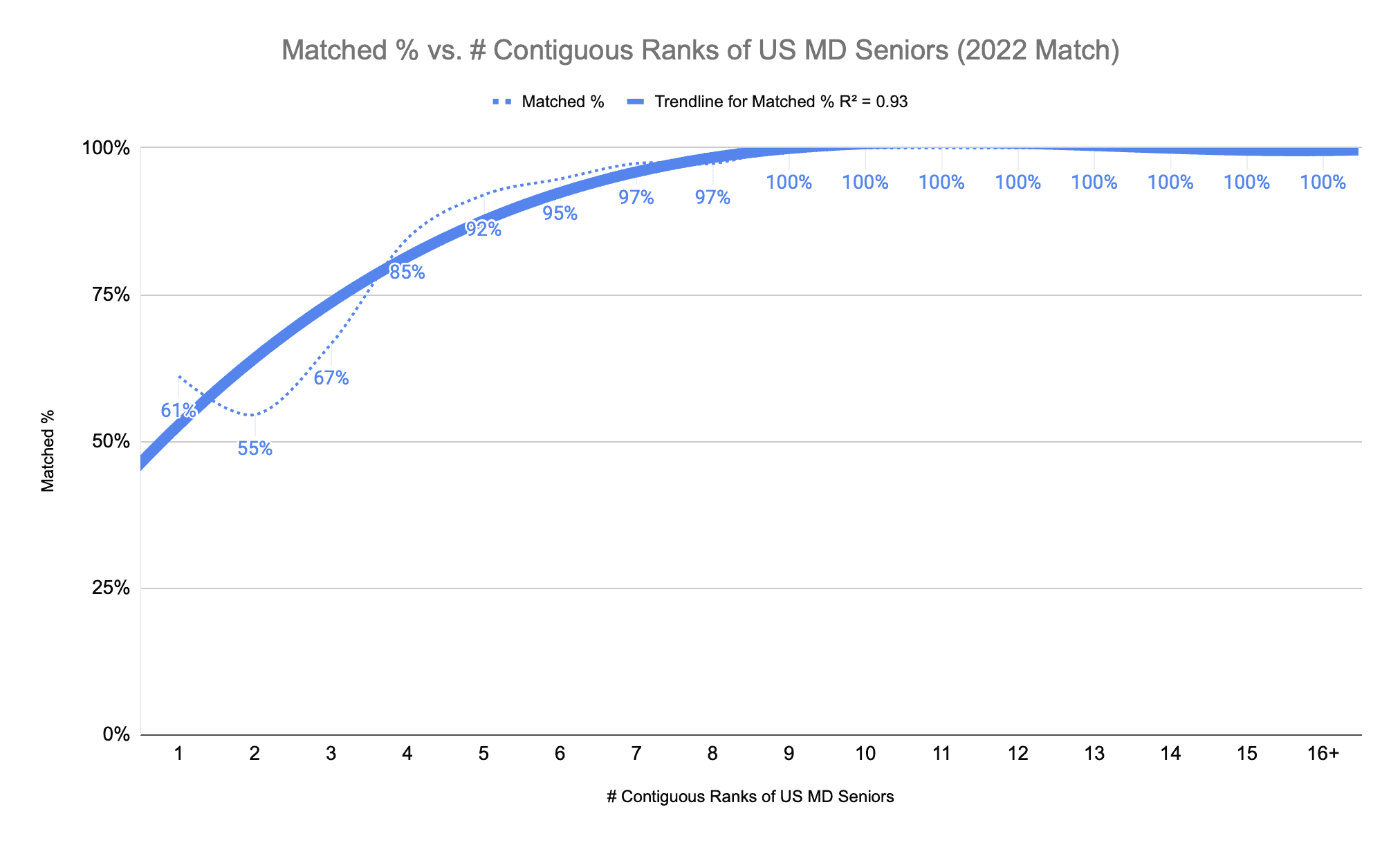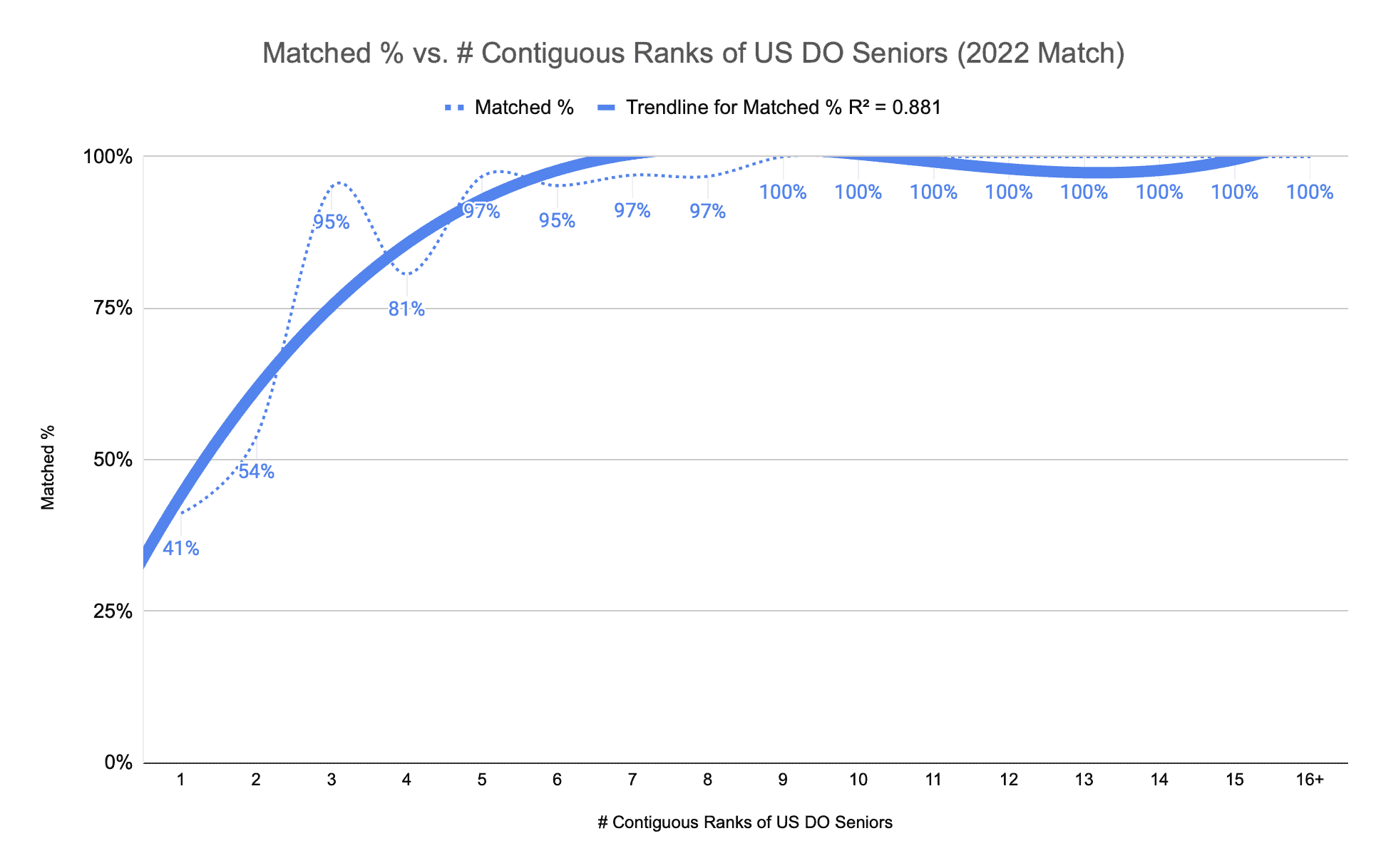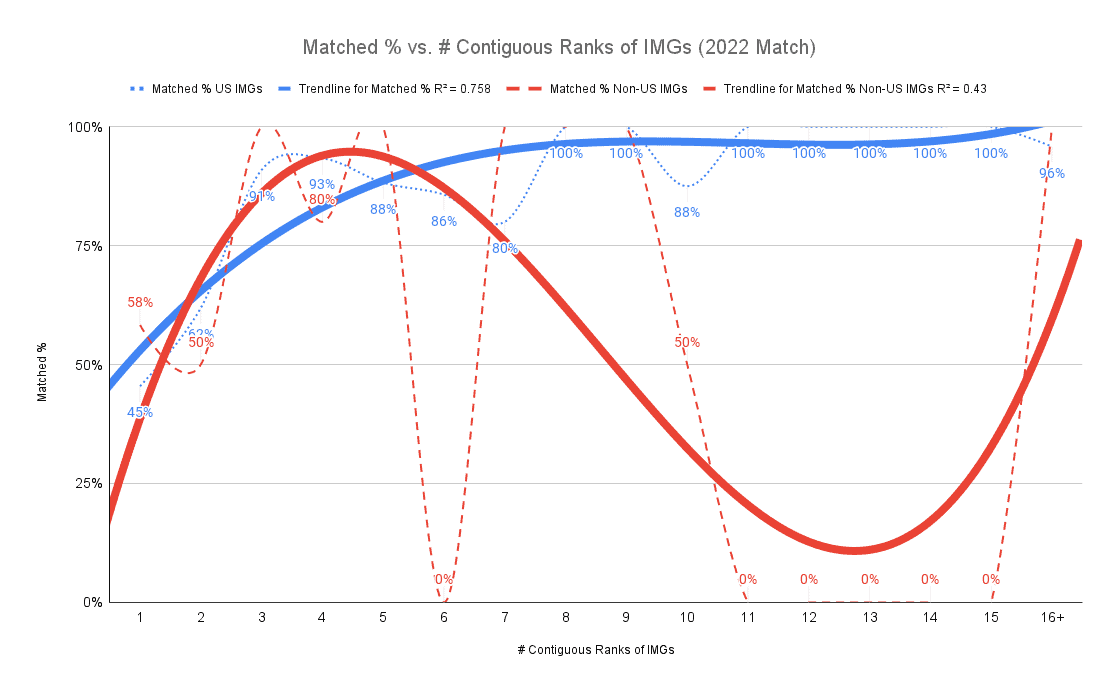
Are you wondering how to match into emergency medicine? Or how many emergency medicine residency programs are there? Do you want to know everything there is about emergency medicine residency interviews? Need to know how many interviews you will have to match in emergency medicine?
In this article, you’ll learn everything you need to match into emergency medicine.
Summary:
- Emergency Medicine is less competitive, in part due to having so many programs and positions available.
- With the volume of applications, emergency medicine residency programs use standardized screens to “weed out” applicants.
- The most successful applicants won’t fail any USMLE, have good USMLE scores, a stellar MSPE, and demonstrate lots of interest in programs.
- Historically, most emergency medicine interview invites occur before October 31, and the vast majority before November 30.
Table of Contents
How Competitive is it to Match into Emergency Medicine?
How competitive is it to match into emergency medicine in the US? Here we have the unmatched % for US seniors by specialty. The “unmatched %” means the % of US seniors who applied into emergency medicine who did not match during the given year.
This is one measure of specialty competitiveness – perhaps the most relevant if you want to match into emergency medicine. In the graph below, you can see that only 1.9% of US seniors were unmatched in 2022.
For more on the competitiveness of emergency medicine relative to other medical specialties, see this article.
How Many Emergency Medicine Residency Programs Are There?
Before we discuss how many emergency medicine residency programs there are in the US, let’s review some terminology. For many specialized residency programs (e.g., anesthesiology, dermatology, radiology, radiation oncology, etc.), the specialty training begins during their second year of residency. This second year is also known as the PGY-2 (post-graduate year 2, for the second year after graduating from medical school).
Categorical vs. Advanced vs. Physician Emergency Medicine Programs
Emergency Medicine has three different kinds of residency programs applicants can potentially enter: categorical, advanced, and physician (R).
Categorical refers to programs that include all years of residency training. Emergency medicine residency lasts four years. The first year of training, however, is a “preliminary” year that can be either internal medicine, surgery, or transitional (a sort of grab-bag that will depend on the hospital). Some programs include the PGY-1 “intern” year – these programs are known as “categorical” programs.
Others, however, require applicants to match separately into an intern year. These programs, which begin in the PGY-2 years, are referred to as “advanced” positions.
Finally, for others who have already completed at least a year of residency training, they may be eligible for a “physician” emergency medicine position. These positions allow applicants to move directly into the PGY-2 specialty training and skip the PGY-1 year. This arrangement may be ideal for those who want to complete residency sooner and not have to repeat their intern year.
How Many Emergency Medicine Residency Programs and Positions Are There?
In the 2022 NRMP Match, there were:
- 277 Emergency Medicine programs offering 2,921 PGY-1 (categorical) positions,
- 0 Emergency Medicine programs offering 0 PGY-2 (advanced) positions, and
- 0 Emergency Medicine programs offering 0 Physician (R) positions.
Thus, the total number of Emergency Medicine residency positions in 2022 was 2,921 + 0 + 0 = 2,921. There were at least 277 Emergency Medicine programs in 2022. However, it is unclear how many more than that there were since many of the residency programs that offer advanced and/or physician positions also offer categorical ones.
See the 2022 Main Residency Match Results and Data for more information on emergency medicine match statistics.
How to Match into Emergency Medicine: Impressing Program Directors
To match into emergency medicine, you must first be invited to interview. According to the most recent program director (PD) survey from 2021, PDs shared what they look for in candidates they hope to interview.
For emergency medicine, the top five most important characteristics for receiving an interview, according to program directors, were:
- USMLE step 1 score
- MSPE
- USMLE step 2 CK score
- Grades in required clerkships
- Any failed USMLE attempt
The same data are presented more fully in a table. Here you will see the % of program director respondents who cited a factor as important for granting an interview, as well as the mean importance score (out of 5).
To balance the breadth of program directors citing each factor with the importance given to each factor, a “composite score” was created. This composite score takes the average of the % respondents citing a factor with the importance score scaled to 100%. For example, if 80% of PDs cited a given factor, with a mean importance score of 5.0 (out of 5), the composite score would be 90%. (The average of 80% of PDs citing with 5/5 – or 100% – for the mean importance, for a composite score of 90%).
| Emergency Medicine: Characteristics Considered in Deciding Whom to INTERVIEW (% of Respondents Endorsing) | Emergency Medicine: Characteristics Considered in Deciding Whom to INTERVIEW (Mean Importance / 5) | Emergency Medicine: Characteristics Considered for Interview Composite Score (Average of % Respondents Endorsing and Mean Importance / 5) | |
|---|---|---|---|
| USMLE Step 1 Score | 83.8% | 3.5 | 93.3% |
| MSPE | 77.0% | 3.8 | 84.9% |
| USMLE Step 2 CK Score | 77.0% | 3.8 | 83.6% |
| Grades in Required Clerkships | 70.3% | 3.9 | 83.2% |
| Any Failed USMLE Attempt | 74.3% | 4.6 | 81.2% |
| Class Ranking/Quartile | 66.2% | 3.8 | 79.5% |
| Grades in Clerkship in Preferred Specialty | 79.7% | 4.5 | 79.2% |
| Any Failed COMLEX-USA Attempt | 64.9% | 4.7 | 78.5% |
| Consistency of Grades | 56.8% | 3.7 | 77.8% |
| COMLEX-USA Level 1 score | 55.4% | 3.6 | 77.5% |
| Awards/Honors in Clinical Clerkships | 45.9% | 3.3 | 77.2% |
| COMLEX-USA Level 2 CE Score | 51.4% | 4.1 | 76.9% |
| AOA Membership | 54.1% | 3.5 | 76.5% |
| GHHS Membership | 58.7% | 3.6 | 76.5% |
| Passing USMLE Step 2 CS | 28.4% | 3.8 | 74.4% |
| Awards/Honors, Clerkship in Preferred Specialty | 52.7% | 4.2 | 74.2% |
| Continuous Medical Education w/o Gaps | 41.9% | 3.6 | 71.1% |
| Medical School Accreditation Status | 27.0% | 3.8 | 71.1% |
| Medical School Reputation | 36.5% | 3.5 | 70.4% |
| Passing COMLEX-USA Level 2 PE | 21.6% | 3.6 | 70.1% |
| Awards/Honors in Basic Sciences | 16.2% | 2.8 | 68.5% |
| Sigma Sigma Phi Membership | 25.7% | 3.3 | 68.4% |
| USMLE Step 3 Score | 2.7% | 2.5 | 66.7% |
| COMLEX-USA Level 3 Score | 2.7% | 2.5 | 65.4% |
| How Medical School Handled Virtual Rotations | 9.5% | 3.1 | 65.4% |
| Letters of Recommendation in Specialty | 90.5% | 4.8 | 63.7% |
| Personal Statement (Overall) | 64.9% | 3.6 | 62.6% |
| Diversity Characteristics | 82.4% | 4 | 62.1% |
| Perceived Commitment to Specialty | 81.1% | 4.3 | 60.6% |
| Having Overcome Significant Obstacles | 74.3% | 4 | 57.0% |
| Professionalism and Ethics | 70.3% | 4.4 | 56.0% |
| Perceived Interest in Program | 73.0% | 4.2 | 53.3% |
| Leadership Qualities | 68.9% | 4.3 | 53.2% |
| Volunteer/Extracurricular Experience | 60.8% | 4 | 52.3% |
| Personal Prior Knowledge of Applicant | 58.1% | 4.1 | 52.2% |
| Other Life Experience | 62.2% | 4 | 51.5% |
| Audition Elective/Rotation in PD's Dept | 63.5% | 4.6 | 47.2% |
| Involvement and Interest in Research | 36.5% | 3.4 | 46.8% |
| Ability to Work Legally w/o Visa | 31.1% | 4.7 | 45.9% |
| Visa Status | 24.3% | 4.1 | 44.5% |
| Fluency in Language of Pt Population | 23.0% | 3.3 | 36.1% |
| NRMP Flag for Match Violation | 31.1% | 4.5 | 35.8% |
| Interest in Academic Career | 28.4% | 3.3 | 26.4% |
| Away Rotation in Specialty Elsewhere | 60.8% | 4.4 | 26.4% |
Here are the composite scores for the criteria emergency medicine program directors use for grading interviews.
What Do Emergency Medicine Program Directors Look for When Ranking Applicants?
Getting an interview is only part of the process of matching into emergency medicine. Program directors also rank the most important factors for creating their rank order list.
In the 2021 Program Director Survey, emergency medicine PDs rated these criteria as most important for deciding whom to rank:
- USMLE step 1 score
- MSPE
- USMLE step 2 CK score
- Class ranking/quartile
- Any failed USMLE attempt
We can see the full list here:
| Emergency Medicine: Characteristics Considered in Deciding Whom to RANK (% of Respondents Endorsing) | Emergency Medicine: Characteristics Considered in Deciding Whom to RANK (Mean Importance / 5) | Emergency Medicine: Characteristics Considered for Rank Composite Score (Average of % Respondents Endorsing and Mean Importance / 5) | |
|---|---|---|---|
| USMLE Step 1 Score | 70.3% | 3.5 | 89.2% |
| MSPE | 58.1% | 3.8 | 88.9% |
| USMLE Step 2 CK Score | 64.9% | 3.8 | 88.6% |
| Class Ranking/Quartile | 51.4% | 3.7 | 85.2% |
| Any Failed USMLE Attempt | 44.6% | 4.4 | 83.5% |
| Grades in Required Clerkships | 52.7% | 3.9 | 79.2% |
| COMLEX-USA Level 2 CE Score | 47.3% | 3.9 | 78.5% |
| COMLEX-USA Level 1 score | 52.7% | 3.5 | 78.2% |
| Any Failed COMLEX-USA Attempt | 39.2% | 4.4 | 76.1% |
| Grades in Clerkship in Preferred Specialty | 56.8% | 4.3 | 75.8% |
| Consistency of Grades | 32.4% | 3.7 | 75.1% |
| AOA Membership | 39.2% | 3.2 | 72.1% |
| GHHS Membership | 44.6% | 3.5 | 72.0% |
| Continuous Medical Education w/o Gaps | 27.0% | 3.6 | 71.4% |
| Passing USMLE Step 2 CS | 24.3% | 3.4 | 70.5% |
| Awards/Honors, Clerkship in Preferred Specialty | 29.7% | 4 | 70.2% |
| Awards/Honors in Clinical Clerkships | 25.7% | 3.7 | 69.7% |
| Medical School Reputation | 29.7% | 3.6 | 67.1% |
| Medical School Accreditation Status | 17.6% | 3.6 | 66.3% |
| Passing COMLEX-USA Level 2 PE | 17.6% | 3.7 | 65.8% |
| Sigma Sigma Phi Membership | 17.6% | 3.1 | 65.4% |
| Awards/Honors in Basic Sciences | 12.2% | 3 | 65.3% |
| USMLE Step 3 Score | 2.7% | 4.5 | 63.7% |
| COMLEX-USA Level 3 Score | 1.4% | 4 | 63.6% |
| How Medical School Handled Virtual Rotations | 8.1% | 3.3 | 62.7% |
| Interpersonal Skills | 82.4% | 4.8 | 62.7% |
| Interactions with Faculty During Interview/Visit | 79.7% | 4.9 | 61.4% |
| Feedback from Current Residents | 77.0% | 4.5 | 57.3% |
| Interactions with House Staff During Interview/Visit | 74.3% | 4.8 | 54.9% |
| Diversity Characteristics | 74.3% | 4.1 | 54.8% |
| Perceived Commitment to Specialty | 68.9% | 4.4 | 53.5% |
| Letters of Recommendation in Specialty | 81.1% | 4.8 | 53.2% |
| Perceived Interest in Program | 67.6% | 4.2 | 51.8% |
| Personal Statement | 63.5% | 3.4 | 51.6% |
| Professionalism and Ethics | 58.1% | 4.6 | 50.9% |
| Leadership Qualities | 70.3% | 4.4 | 50.9% |
| Having Overcome Significant Obstacles | 66.2% | 3.9 | 49.9% |
| Personal Prior Knowledge of Applicant | 51.4% | 4.4 | 49.5% |
| Other Life Experience | 48.6% | 4.1 | 48.5% |
| Volunteer/Extracurricular Experience | 47.3% | 4 | 46.5% |
| Audition Elective/Rotation in PD's Dept | 58.1% | 4.7 | 46.4% |
| Involvement and Interest in Research | 23.0% | 3.5 | 46.2% |
| Fluency in Language of Patient Population | 20.3% | 3.3 | 45.8% |
| Ability to Work Legally w/o Visa | 13.5% | 4.5 | 45.1% |
| Other Post-Interview Contact | 25.7% | 3.8 | 44.8% |
| Interest in Academic Career | 18.9% | 3.9 | 43.2% |
| NRMP Flag for Match Violation | 18.9% | 4.4 | 40.7% |
| Visa Status | 13.5% | 4.8 | 39.8% |
| Applicant Facility with Meeting Platform Tech | 13.5% | 3.1 | 37.8% |
| Away Rotation in Specialty Elsewhere | 50.0% | 4.7 | 37.1% |
| Second Interview/Visit | 12.2% | 3.9 | 36.1% |
Finally, we can see the composite scores for criteria used to rank emergency medicine applicants.
What Characteristics Do Successful Emergency Medicine Applicants Share?
Here are the characteristics of matched vs. unmatched US seniors applying to emergency medicine.
| Matched | Unmatched | |
|---|---|---|
| Mean number of contiguous ranks, US Senior | 15 | 3 |
| Mean number of distinct specialties ranked, US Senior | 1.1 | 1.6 |
| Step 1, US Senior | 234 | 219 |
| Step 2, US Senior | 247 | 232 |
| Mean number of research experiences, US Senior | 3.2 | 2 |
| Mean number of abstracts, presentations, and publications, US Senior | 5.1 | 2.7 |
| Mean number of work experiences, US Senior | 3.9 | 4.6 |
| Mean number of volunteer experiences, US Senior | 8.2 | 6.9 |
| Percentage who are AOA members, US Senior | 11.9 | 4.3 |
| Percentage who graduated from one of the 40 U.S. medical schools with the highest NIH funding, US Senior | 27.9 | 30.4 |
| Percentage who have Ph.D. degree, US Senior | 1.2 | 0 |
| Percentage who have another graduate degree, US Senior | 20.3 | 30 |
Match Into Emergency Medicine: Pass the Screens with High USMLEs
Emergency medicine relies on standardized screens to weed out applicants. In the 2021 Program Director Survey, emergency medicine PDs respondents reported that 31% of applications were rejected via standardized screen. This ranked near the lower end of the middle of all residencies.
What are the Step 1 and Step 2 CK Cut-Offs for Interviews in Emergency Medicine?
As mentioned above, emergency medicine ranks near the middle of programs using standardized screens to eliminate applications. Many emergency medicine programs screen out applicants with failed USMLE Step 1 and Step 2 CK (see below). In addition, PDs use Step 1 and Step 2 CK score cut-offs to weed out applicants.
For Step 1, emergency medicine program directors reported Step 1 score cut-offs between 205 and 215 as 25% and 75%ile marks to screen out applicants.
Similarly, emergency medicine program directors reported Step 2 CK scores between 210 and 229 as 25% and 75%ile cut-offs.
For more on the USMLE cut-off scores for granting interviews – or weeding out applicants – see this article.
If I Fail Step 1, Can I Still Match Into Emergency Medicine?
If you failed Step 1, you might wonder if you can still match into emergency medicine. In the most recent program director survey addressing this question, we can see that emergency medicine programs are relatively unforgiving if you’ve failed Step 1.
In 2020, 23% of PDs for emergency medicine reported they “never” consider applicants who fail Step 1, while 72% would “seldom” consider it. Only 5% of emergency medicine programs “often” consider someone with a Step 1 fail.
Did you fail Step 1 and are wondering what you can do to recover? Read this article and consider scheduling a consultation.
If I Fail Step 2 CK, Can I Still Match Into Emergency Medicine?
Similarly, you may wonder what your chances of matching into emergency medicine are if you fail Step 2 CK. Just like with Step 1, emergency medicine PDs are unforgiving for not passing Step 2 CK.
In 2020, emergency medicine 30% of PDs reported they “never” consider applicants who fail Step 2 CK, while 68% would “seldom” consider it. Only 3% of emergency medicine programs “often” consider someone with a Step 2 CK fail.
Did you fail Step 2 CK and wonder what you can do to recover? Read this article and consider scheduling a consultation.
How Many Publications for Emergency Medicine Residency in 2022
Research is an important characteristic for matching into many specialties, particularly the most competitive. So, how many publications do you need to match into an emergency medicine residency?
In 2022, the mean number of abstracts, presentations, and publications for US seniors who matched into emergency medicine was 5.1. The mean number of research experiences was 3.2.
Do I Need an MD-PhD to Become an Emergency Medicine Physician?
You may wonder how much an MD-PhD helps with matching into emergency medicine. It appears that having a PhD correlates with only an advantage of 2% when applying into emergency medicine. Specifically, the match rate for those with a PhD is 2% higher than for those without one when applying into emergency medicine.
Note that those with PhDs are relatively rare among emergency medicine residents. In fact, only 1.2% of matched applicants into emergency medicine had a PhD in 2022.
Emergency Medicine Residency Interviews
When you apply to emergency medicine, you may be wondering what the chances of getting an interview are. Here we present the outcomes of applicants per the 2021 NRMP Program Director Survey.
Note that emergency medicine uses standardized screens to reduce the number of applicants. Roughly 31% of applicants that year were eliminated via a screen (e.g., Step 2 CK scores, visa status, failed a USMLE in the past, etc.). 62% of applicants received a holistic review of their application.
When Are Emergency Medicine Residency Interview Invites Sent vs. Conducted?
When you apply to residency, you’ll be doing a lot of waiting. Specifically, you’ll be waiting to hear whether – and when – you will be able to interview.
Want to know when you might expect to hear from emergency medicine programs regarding your residency application? Here are when programs typically extend and conduct interviews. Note that the most recent data are from 2020.
Here are the same data presented differently. Note that due to rounding, sometimes the percentages can add up to more than 100%.
How Many Interviews to Match in Emergency Medicine?
How many interviews to match in emergency medicine with confidence? For US Seniors, the magic number of interviews needed to match into emergency medicine is 5-10. In 2022, having 4 interviews (and ranking them all on their match list) led to about an 85% chance of matching. For even greater safety, though, having 6+ interviews led to more than a 95% chance of matching into emergency medicine for US seniors.
How Many Interviews to Match in Emergency Medicine as a DO?
For DO seniors, considerably more interviews were necessary to match into emergency medicine comfortably. To reach the 75% threshold, about 3 or 4 interviews were needed. To go beyond the 90% threshold, 5 or more interviews were needed in 2022.
How Many Interviews to Match in Emergency Medicine as an IMG?
Similar to DOs, more interviews were necessary for IMGs to comfortably match into emergency medicine. To reach the 75% threshold, between 3 and 4 interviews were necessary for both U.S. IMGs and non-US IMGs. If an applicant had more than 5 interviews, match percentage was about 80% and higher for both IMG groups.
Concluding Thoughts
Matching into emergency medicine is a challenging proposition. The challenge may feel more daunting if we have perceived weaknesses in our application, or if we want to match in a top program, a desirable location, and/or couples match.
The good news? Matching into emergency medicine depends largely on things you can control – your USMLEs, your clinical performance/MSPEs, whether you fail Step 1 or Step 2 CK, and how much interest you show to programs.
Looking for an Emergency Medicine Residency Advisor?
Looking for an emergency medicine residency advisor? Want help writing your personal statement? Need effective strategies for interviewing? Do you have things on your application – e.g., low USMLE scores, failed USMLEs, no research, IMG status, or others – you need help overcoming?
Be sure to check out our Residency Advisor service.

